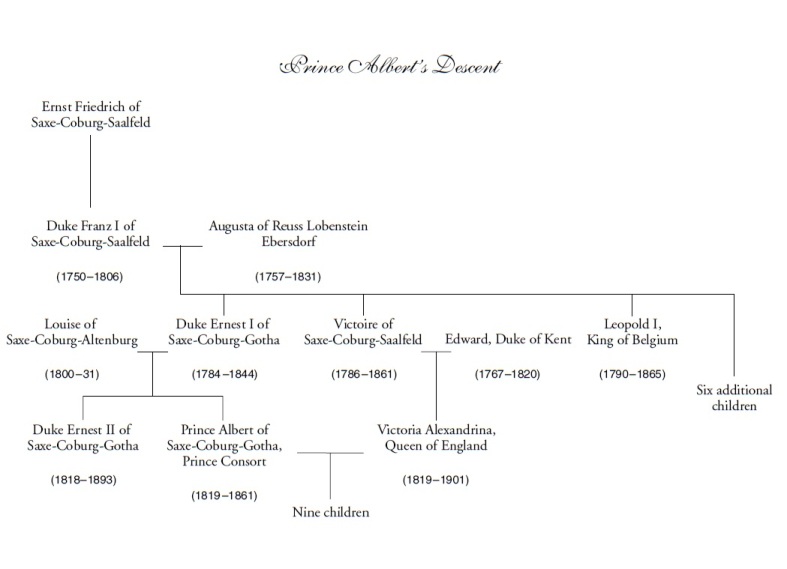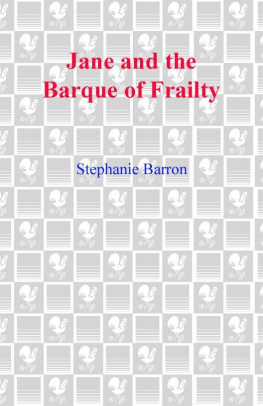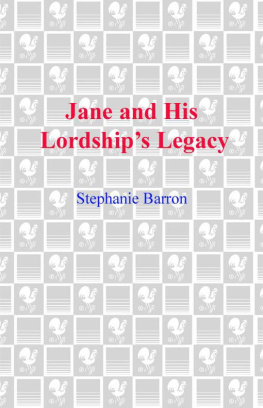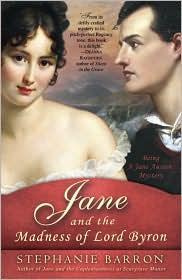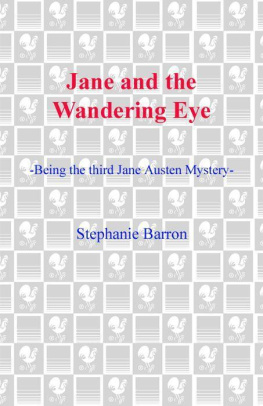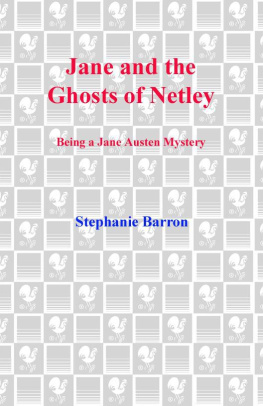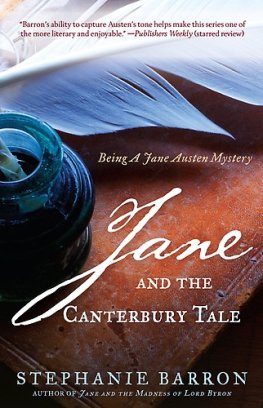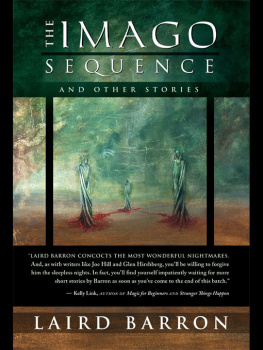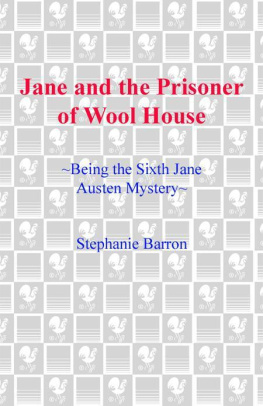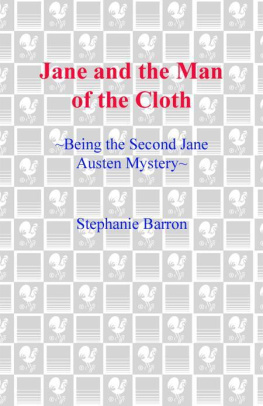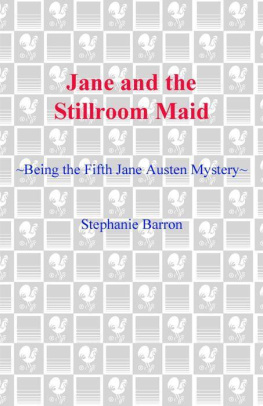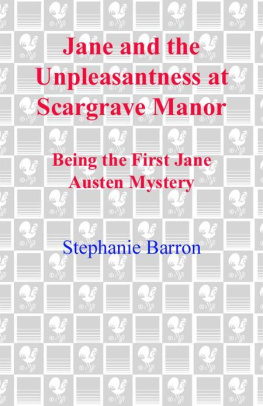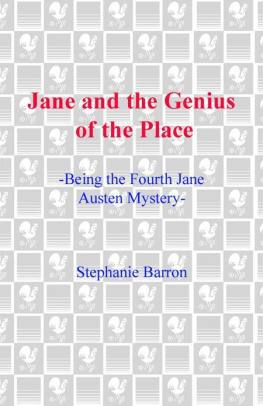Annotation
The acclaimed author of the bestselling Jane Austen mysteries brings rich historical immediacy to an enthralling new suspense novel centered around Queen Victoria's troubled court...and a secret so dangerous, it could topple thrones.
Windsor Castle, 1861. For the second time in over twenty years, Irish barrister Patrick Fitzgerald has been summoned by the Queen. The first time, he'd been a zealous young legal clerk, investigating what appeared to be a murderous conspiracy against her. Now he is a distinguished gentleman at the top of his profession. And the Queen is a woman in the grip of fear. For on this chilly night, her beloved husband, Prince Albert, lies dying.
With her future clouded by grief, Fitzgerald can't help but notice the Queen is curiously preoccupied with the past. Yet why, and how he can help, is unclear. His bewilderment deepens when the royal coach is violently overturned, nearly killing him and his brilliant young ward, Dr. Georgiana Armistead, niece of the late Dr. Snow, a famed physician who'd attended none other than Her Majesty.
Fitzgerald is sure of one thing: the Queen's carriage was not attacked at randomit was a carefully chosen target. But was it because he rode in it? Fitzgerald won't risk dying in order to find out. He'll leave London and take Georgiana with himif they can get out alive. For soon the pair find themselves hunted. Little do they know they each carry within their past hidden clues to a devastating royal secret...one they must untangle if they are to survive.
From the streets of London to the lush hills of Cannes, from the slums of St. Giles to the gilded halls of Windsor Castle, A Flaw in the Blood delivers a fascinating tale of pursuit, and the artful blend of period detail and electrifying intrigue that only the remarkable Stephanie Barron can devise.
Stephanie Barron
A Flaw in the Blood
Dedicated to the strongest women I know
Jo, Pat, Liz, and Cathy.
Love you.
Acknowledgments
I have long been seduced by the possibilities of the past: the secrets buried there, the personalities lost to time. The support of an editor equally bewitched by these things is of immeasurable importance, and I am grateful for the keen mind and exacting standards of Kate Miciak, Executive Editor, Bantam Books. Kate is the sort of person who will devour an entire library of reference works merely to edit a manuscript, and our conversations about Victorias life and world shaped this book.
Thanks are also due to my copyeditor at Bantam, Lorie Young, whose thoroughness and patience are endless; and to Molly Boyle, assistant editor, who ensured that every i was doted and every t crossed. Sharon Propson shepherds my work through the slings and arrows of publicitys fortune, and I am grateful for her unquenchable enthusiasm.
Rafe Sagalyn, of the Sagalyn Literary Agency, has borne with me for more than fourteen years. Rafe and his dedicated team make it possible for me to writeand for that, I owe them the world.
My family endured endless lectures on sewer systems, nineteenth-century prostitution, medical ignorance, and the state of the Irish in Victorian Englandwithout committing periodic acts of violence or moving out. Thanks, Mark, for putting up with the madwoman in the attic; and to Sam and Steve, for loving words as much as I do.
Prologue
Coburg, 1 October 1860
When the agony of the state dinner was over and his wife was preoccupied with the other women, he ceased to talk quite so feverishly before the crowd of people whod come to the Rosenau to see them. He knew his bright chatter had fooled nobody. They were all frightened by his brush with death. The telegrams had been pouring in all day, from Paris and London and North America. Hed fallen when hed jumped from the run-away carriage and his nose and chin were bruised. The others ignored his bandages, just as they ignored his near-hysteria, his desperate grasping at normalcy.
He abandoned his brother and the others as soon as he decently could and avoided the noise of the grand saloon altogether, taking a side passage away from the public rooms toward the rear of the palace. He had grown up in the Rosenau and he loved it better than any place on earth; it was here hed been happiest, despite his fathers rages and his brothers reckless pursuit of pleasure,the serving maids thrust up against the ancient walls, their skirts fanning around Ernests thighs. Ernest was the duke now, and the old people were buried with their secrets; he, Albert, was forty-one and king of England in all but name.
He mounted a back staircase and without hesitation made for the nursery wing. The noise of the chosen world receding behind him.
As he hurried along the corridor, a phrase recurred in his jangling brain: Mein letztes Stndlein gekommen wre. My last hour had come. He would write it to his daughter, Vicky, whod already gone back to Berlin and thus would have been spared the horror of his death; it was what hed felt overwhelmingly as the carriage swayed toward the railroad crossing, the horses maddened by his whip. Death waited beyond the crossing bar.
At the schoolroom door he hesitated. There was no fire in the grate, but a single candle burned in a sconce on the far wall. Too late to step back or move on; too late to pretend, as he had for most of his life, to be someone else. A dim silhouette in candlelight; the man turned.
My dear boy. I thought you might come.
Stockmar; of course it was Stockmar. Of all the teachers in Alberts life,he was the least official and the most trusted. The baron was seventy, now, and refused to travel to England even for Albert; but if any man was responsible for the Consorts fate, it was he.
Albert slumped down in one of the hard schoolroom chairs and waited.
Youve had a narrow escape.
Yes.
The old man shuffled to the door, closed it with a palsied hand. You know what theyre saying? Not to your face, of coursebut in the back rooms and alleyways of Coburg? How could as fine a whip as the Consort lose control of his horses?
Perhaps Im less of a whip than they thought.
Thats what well tell them, of course. Stockmar nodded. Well put it down to too many years in England, where nobody at all understands horseflesh. Even a lie as implausible as that is preferable to admitting suicide.
Albert said nothing. He gingerly touched the bandages on his nose. Stockmar sank heavily into another chair. The two of them faced each other as they had thirty years ago, when the subjects at issue were also duty and character.
Well? Are you going to tell me about it? Or do you want the old man to go away and leave you alone with your demons?
Albert shrugged. What is there to tell? I had a stupid accident. Im thankful to be alive.
Ive never known you to drive four-in-hand without so much as a groom up behind you.Thats another thing people will talk about. Why did he go out alone?
Precisely to be alone! And I dont give a damn what people say!
The outburst was uncharacteristic; Albert was never uncontrolled. He cultivated self-restraint the way other men pursued God. Stockmar raised one eyebrow and sat stiffly, arms folded.
There was ... a waggon at the crossing bar, the younger man relented. A farmer, waiting for the train to go by. I couldnt avoid hitting him, so
So you jumped, rather than kill the man outright. Thats like your kindness. Even in the depths of despair youd think of the poor fool you might take with you. Jump, and the horses would be bound to veer of. But it must have been disappointing, all the same. You were so close, werent you? The train. The impact. The blessed release.
